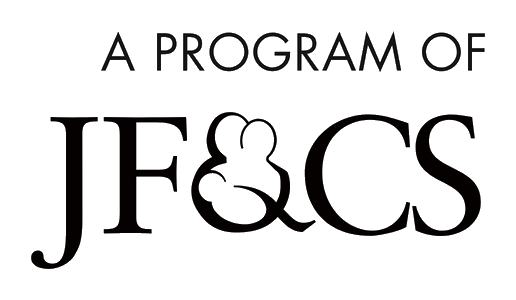Resources
Your Elder Experts Care Managers are here to answer questions you may have regarding an older parent, a spouse, a client, or yourself. We are pleased to provide answers to some of these frequently asked questions.
Deciding whether an older adult should continue driving or not is often a major milestone in the gaining process. We recommend starting with a of driving safety and evaluation programs (listed below). There is also a great resource for tips for having the conversation about handing over the car keys, and about ways to get around if you stop driving.
Ten Tips for Talking to Your Parents About Giving Up Driving (PDF)
The Emotional and Physical Costs of Giving Up Driving (PDF)
Keys to Independence Program at Emerson Hospital and Concord
Deficits in vision, sensation, coordination, and cognition (thinking skills) can affect driver safety. Driver assessment is a great way to help individuals and families determine strengths and weaknesses related to learning to drive or returning to drive after illness. An Emerson occupational therapist/driver rehabilitation specialist (OT-DRS) is on-site to provide comprehensive driver assessment.
Newton-Wellesley Hospital: Drive Safe
The Drive Safe program within the Rehabilitation Service Department is designed for adults who are experiencing functional change due to medical conditions, trauma, surgery, neurological incidents, or aging. The evaluation includes a comprehensive assessment of the visual, perceptual, cognitive, and physical skills necessary for driving as well as knowledge of the rules of the road and driving safety. If the patient demonstrates the prerequisites skills for driving, the occupational therapist will coordinate a behind the wheel assessment that is conducted by a licensed driving instructor.
Spaulding Rehabilitation Hospital Network: Driving Assessment Program
An evaluation is conducted by an occupational therapist at one of six centers. The evaluation begins with a clinical assessment that takes one to two hours. Following this, a person may be recommended for an in-vehicle assessment coordinated between the person, their family/support, the occupational therapist, and one of Spaulding’s partner driving schools. Results might suggest making adaptations to your car or seeing an ophthalmologist.
Your Elder Experts is dedicated to helping older adults live independently in their own homes whenever possible – and for as long as possible. We offer the broadest network of services to older adults throughout Greater Boston to allow them to reach this goal.
My mother isn’t ready to move yet but needs more help. How should I proceed?
You and your aging parent may benefit from an assessment by either a Care Manager or a social worker from the local senior services center or Council on Aging. Many towns have social workers available for assessments and consultations as well. There are many home-based and community programs that are designed to help support older adults in their wish to remain at home.
I need to move my aging parents here from out of state. What kind of housing is available? What are the issues I should be thinking about?
The two most important questions regarding senior housing are:
- What kind of support do they require to be safe and well cared for in their home?
- What can they afford?
There are housing options for older adults that range from independent or assisted living to nursing home levels of care. Whenever possible it is important to make a move that will last, if not for a lifetime, then for at least a few years as moving is very taxing on older adults.
Whether you are comfortable or living on a low/fixed income there are options for housing that can meet your needs. Discussing the different housing options with a Care Manager from Your Elder Experts can be helpful in understanding the differences between communities for older adults and can help you determine which community most closely matches your aging parents’ needs.
I live in Pennsylvania and my older adult parents live in Greater Boston. They do not want to move but their lives are becoming much more complicated. When I visit I notice that they have declined and sometimes seem overwhelmed. Can you help?
It is very difficult to be a long-distance care partner. If your older adult parents are open to having some assistance, introducing a Care Manager may be extremely helpful for them and for you. A Care Manager can provide a thorough assessment of your parents’ needs, develop an action plan, and then manage and monitor their situation over time. From arranging for home care services to advocating at medical appointments, a Care Manager can stabilize your parents’ living situation and provide you with much needed peace of mind. A Care Manager can be your eyes and ears as well as a support for you while allowing you to focus on the rest of your life.
Quite often, people are unaware that there are resources available to help make life a little easier for older adults and that help is right in their own community. Your Elder Experts offers a comprehensive network of services including Home Health and Homecare, Aging Life Care Management, Mental Health, specialty programs for older adults with Alzheimer’s or Parkinson’s disease, and spiritual supports.
My mother is becoming increasingly isolated. What community resources are available to help her?
It is important to understand why an aging parent is isolated. Is it because she doesn’t have transportation? Is she physically limited? Is she experiencing depression?
Many towns have senior centers that offer both transportation to the center and daily scheduled activities, including lunch. The JCC in your area may also have daily or weekly programming for older adults. If your mother is in need of support during the day and she has either physical or cognitive losses, then an adult day program might be appropriate for her. And, if you feel that your mother may be having difficulty coping with losses and other stressors in life, helping her find a social worker for an evaluation and possible ongoing counseling may be helpful.
My husband’s Alzheimer’s is too much for me to manage on my own. Where can I get help?
Most people find caring for someone with dementia to be more than a one person job. There are many ways you can get support in caring for someone with Alzheimer’s and other dementias.
Care partner support groups offer a compassionate environment in which to share your struggles, learn different ways of coping, and gather resources available in your community. The Alzheimer’s Association, Massachusetts Chapter (311 Arsenal Street, Watertown, MA 02472) keeps lists of support groups and provides a helpful starting point. Respite care can come in different forms. If the care partner would benefit from scheduled time off every day or week, home care services can be arranged. If the care partner would benefit from a much-needed vacation, live-in home care or a short stay in a memory impairment unit of an assisted living facility is also a possibility. Often, having a consultation with a Care Manager from Your Elder Experts can help sort out the needs of both the person with dementia and the care partner in order to make current and future care plans.
Older adults and their adult children often find themselves in uncharted territory. Guidance from experts at Your Elder Experts and numerous support groups throughout Greater Boston can alleviate the stress of the unknown and empower people to make more informed decisions.
I have been caring for my 90-year-old mother for the past two years while running my own home and managing a highly-stressful job. Often I feel overwhelmed and exhausted. Any advice for me in balancing it all?
It is important to focus on your own health and desires when you are the care partner of an aging parent. You can reduce personal stress by recognizing warning signs early, acknowledging your feelings, identifying sources of stress, recognizing what can and cannot be changed, and taking action. Asking for help along the way is as much for you as it is for your mother.


